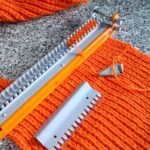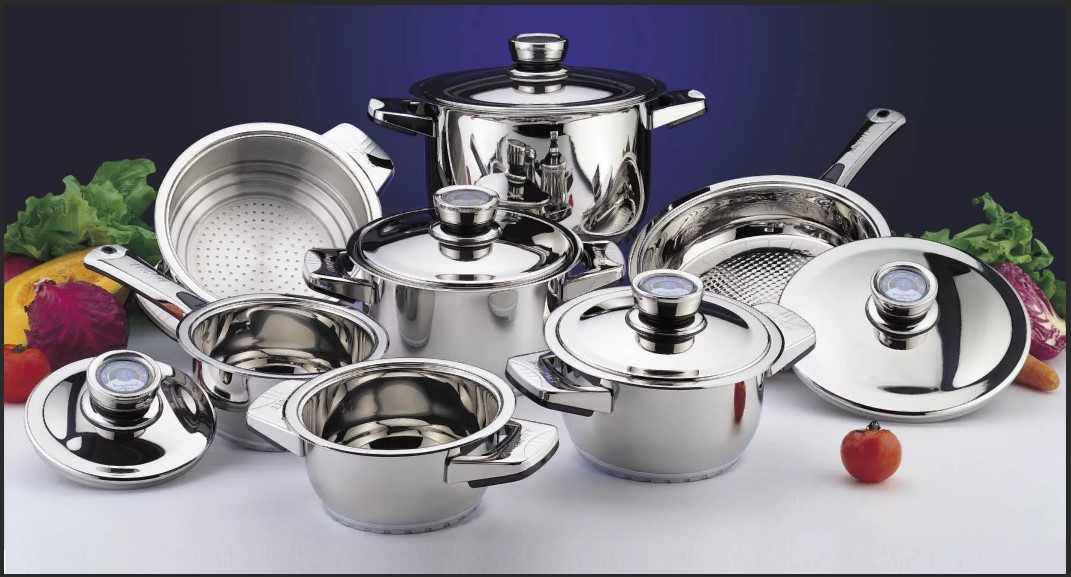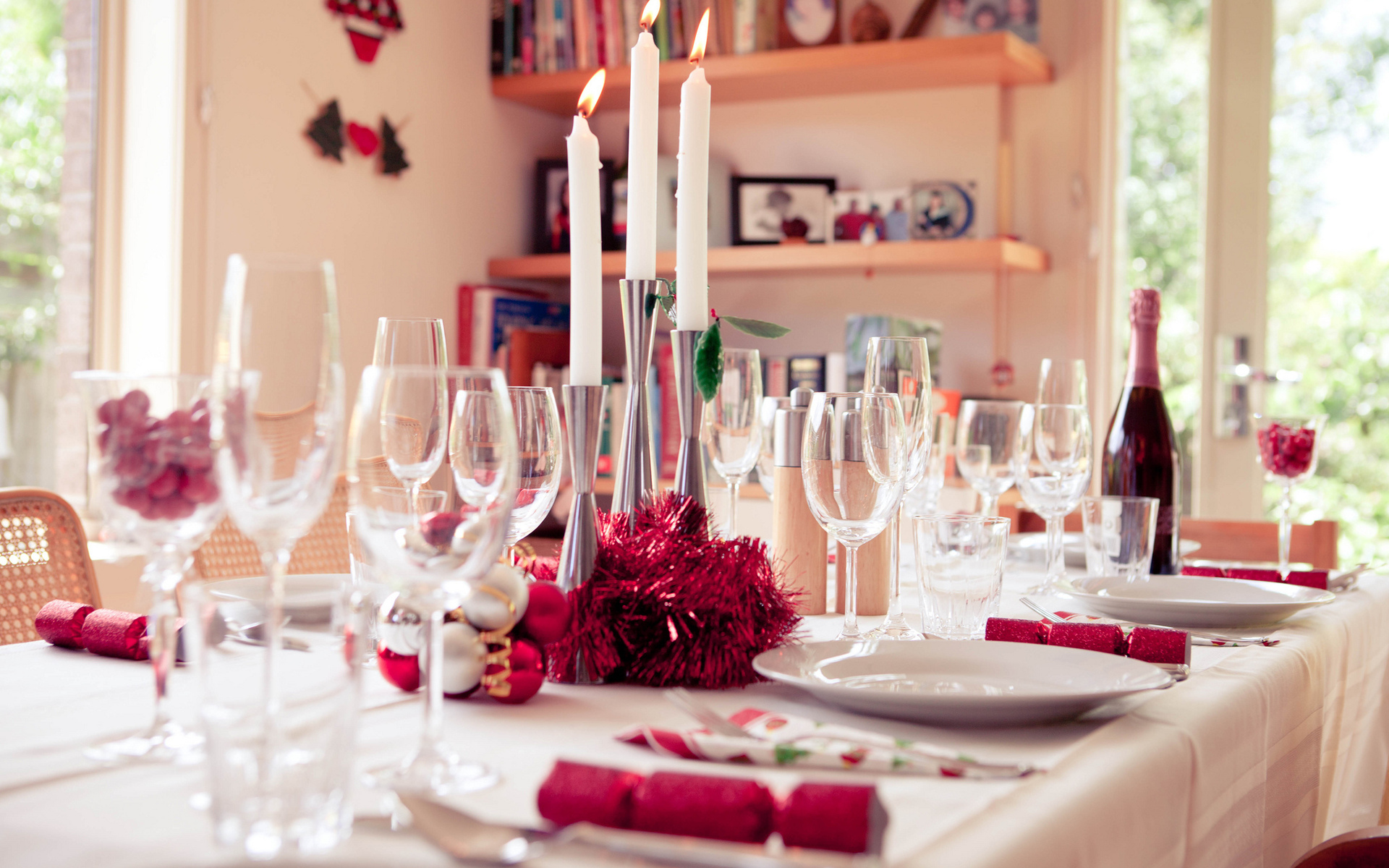How to properly wash dishes in cold water?
Washing dishes is a dubious pleasure that housewives have to deal with every day. And the summer period is also marred by the shutdown of hot water.
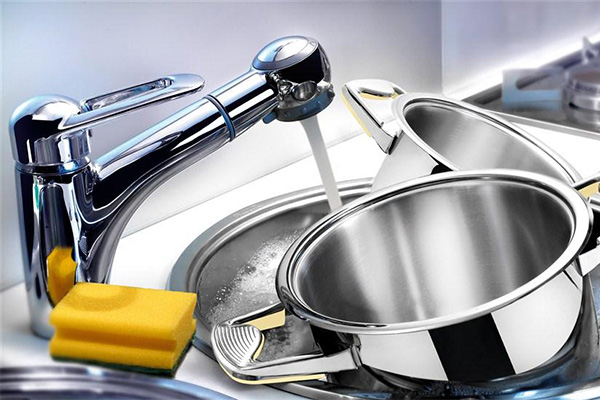
The content of the article
If you have to wash dishes in cold water...
So, it has already been turned off, there is nowhere to retreat, so it’s worth arming yourself with some tricks:
- Immediately after a meal, clear your plates of leftover food. Firstly, food getting into the drain causes it to clog, and secondly, food will not stick to the surface and will be easier to clean off.
- It is advisable to wash dishes immediately after preparing food or after eating. If this is not possible, it must be soaked in warm water, which can be preheated in a saucepan.
- Change your dishwashing sponges regularly. Stores sell various options with which you can easily wash off grease, scale and burnt food.
- Don't stack plates on top of each other. Washing both sides of grease will be unpleasant and take a very long time.
- If soaking for most cutlery occurs without harm, then knives should be washed immediately. In water they begin to rust and may become dull.
- It is necessary to start washing with less dirty dishes while the sponge is clean.
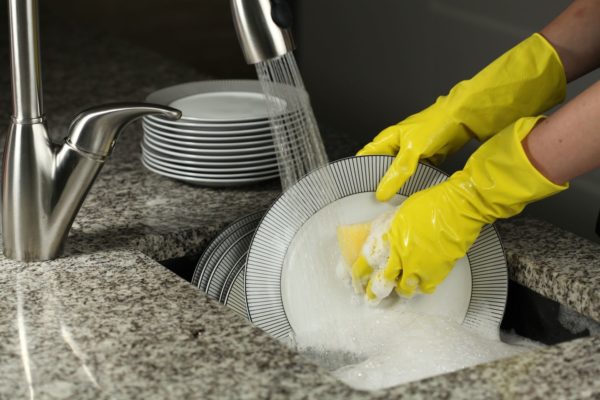
Before you start cooking. You should immediately think about what kind of utensils you will need. This will help you avoid a lot of dirty dishes and coordinate your cooking.
The best way to wash dishes in cold water
You can see a wide variety of detergents on store shelves. Many of them perfectly wash off grease and burnt food. But you should understand that cold water removes the product from the surface worse, so you need to rinse the dishes more thoroughly.
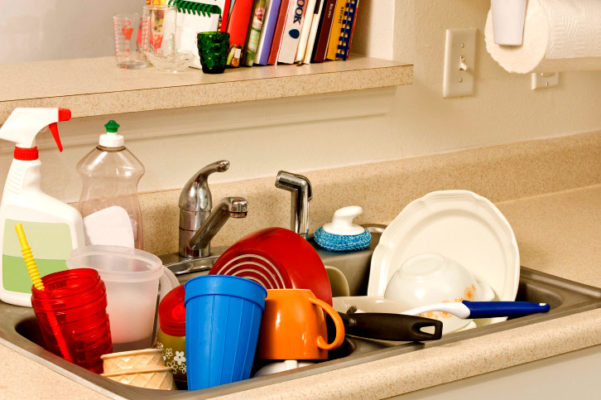
For those who are afraid of chemistry, folk remedies are suitable:
- Baking soda is a universal cleaner. Removes grease, scale, and tea stains. Adds shine to glass and crystal. Soda is used as a detergent: applied to a sponge and wiped the surface. But not suitable for Teflon and non-stick coating;
- mustard is applied in powder form to a sponge or dissolved in water. It does not scratch the Teflon coating, degreases and disinfects the surface. For greater effect, it is mixed with apple or table vinegar;
- laundry soap 65% or 72%. Removes grease and food residues no worse than other detergents.
Greasy dishes - how to wash them
Washing kitchen utensils from grease is a thankless task. It will take a lot of detergent and patience to get the dishes sparkling clean again.
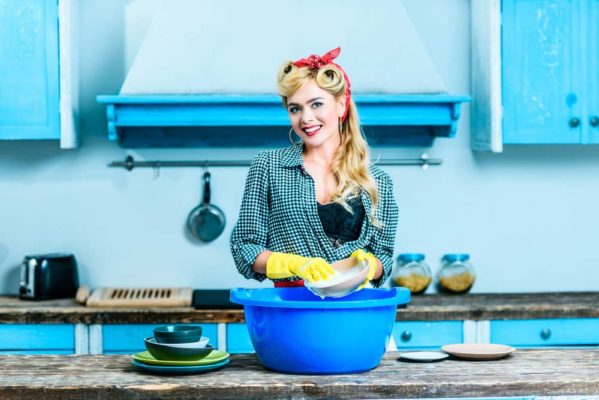
You can simplify this process in the following way:
- First, wash less dirty dishes: spoons, mugs, glasses.
- Close the sink drain with a stopper. If there is no plug, use a basin.
- Pour hot water, add a couple of drops of detergent and leave the items to soak for 15 minutes.
- After 15 minutes, the water in the sink or basin can be slightly diluted with cool water to make washing dishes more comfortable.
- If there is not enough product, then add a small amount to a sponge and start washing dishes directly in the basin/sink. Do not drain the liquid.
- When everything is cleaned of grease, drain the dirty soapy water and rinse the dishes under a cool stream.
- If you are not sure that the product has been washed off, you can rinse the products again.
If you have a supply of non-woven napkins at home, you can wipe the plates with them before washing.
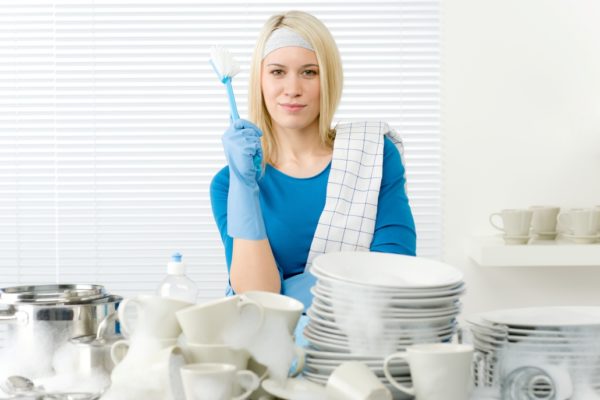
Few people experience pleasure and relaxation from washing dishes, and there are few who like to do it in cold water. To make this process less annoying, you should turn on pleasant music or an audiobook at the same time, which will help distract you. Do not forget about delegating this responsibility to other family members. And to protect the skin of your hands, you must use gloves.

